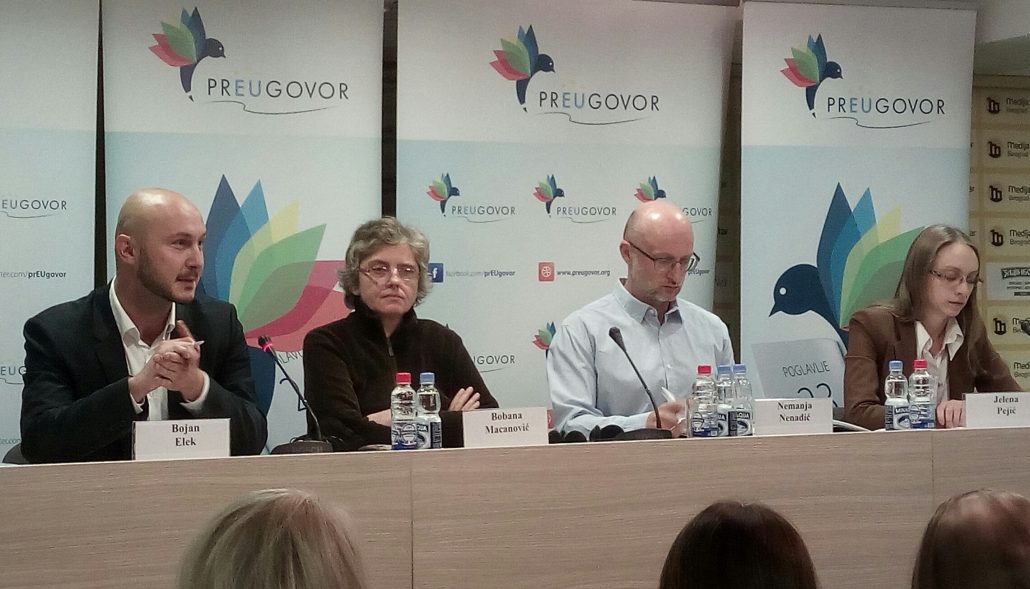The Serbian Justice Ministry has published a draft of its revised Action plan for Chapter 23 – Judiciary and Fundamental Rights – in the country’s pre-accession negotiations with the European Union. The draft was published on the ministry’s web site along with an invitation for comments. The deadline for comments is 8 February.
 The first draft of the revised Action Plan for Chapter 23 was presented at the round table held on 6 February 2019 in Belgrade. Representatives of judicial institutions, civil society organizations and international institutions attended.
The first draft of the revised Action Plan for Chapter 23 was presented at the round table held on 6 February 2019 in Belgrade. Representatives of judicial institutions, civil society organizations and international institutions attended.
The round table was organized with the support of the European Union, which financed the project “EU Justice – Support for Chapter 23”.
The DPNSEE Executive Director participated in the round table. It was an opportunity to meet and exchange with colleagues, especially with those from the Office for Gender equality and Association of Judges and Prosecutors of Serbia.




